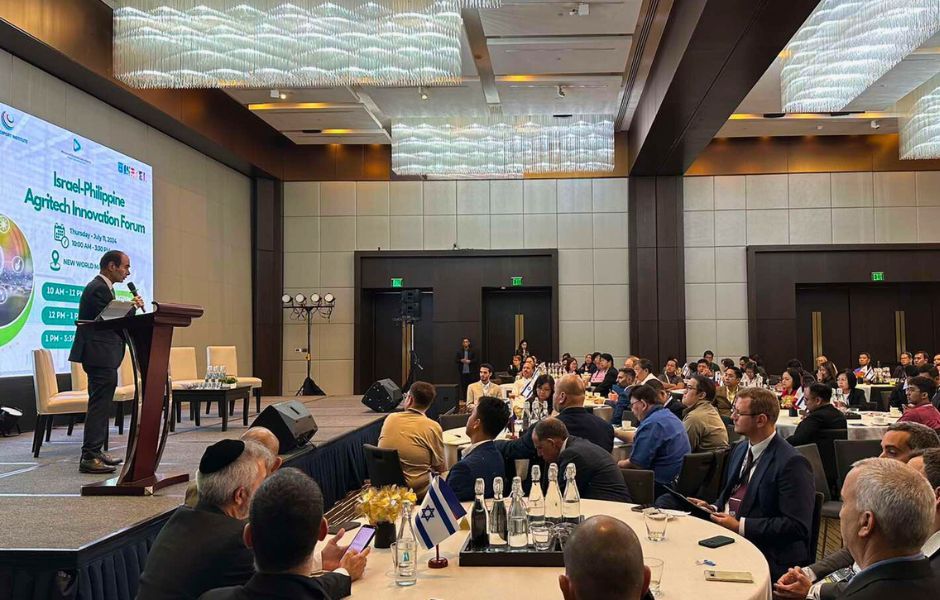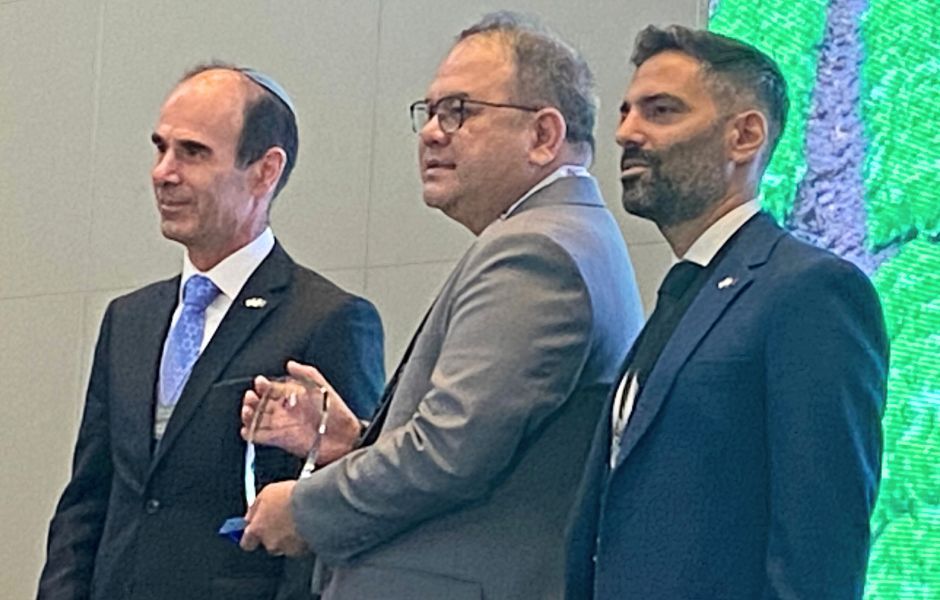By JUNEP OCAMPO
Despite significant challenges at home, Israel remains steadfast in its mission to share agricultural expertise with developing countries, particularly the Philippines. This dedication was on full display at the Israeli-Philippine Agritech Innovation Forum, held at the New World Makati Hotel on July 11.
Israeli Ambassador Ilan Fluss, addressing the forum, acknowledged the "complicated" situation in Israel due to ongoing conflicts with Palestine and Iran. However, he emphasized Israel's resilience and determination to support global agricultural development.
“We have a very complicated situation with the ongoing conflict with Palestine and Iran. But this shows the resilience of Israeli society, the private sector, and the agriculture sector. We’ve suffered so much, yet we’ve survived it. Life continues. If you go to Tel Aviv, people continue to work, study, and live normal lives,” Fluss stated.

Fluss highlighted the role of the Israeli Foreign Ministry in aiding Israeli agribusinesses to expand internationally. He noted Israel's leadership in agricultural technologies, developed out of necessity due to the country's limited arable land. “If you don’t have resources such as land – as 50 percent of Israel is desert – you learn to innovate. We invented drip irrigation, cherry tomatoes, and smart technologies such as the USB and Viber. We are proud to share these with the world to make it a better place,” he said.
In discussions with Philippine President Ferdinand Marcos, Jr., three key areas were identified for collaboration: agriculture, water, and defense. Ambassador Fluss emphasized that Israeli technology could significantly enhance the Philippines' agricultural productivity and food security.
Since 2006, Israel has run an internship program for young Filipino farmers in partnership with the Technical Education and Skills Development Authority (TESDA). Each year, around 500 Filipino farmers gain hands-on experience with Israeli agricultural technology through an 11-month program.
Fluss stressed the importance of shifting farmers' mindsets from subsistence farming to "smart farming" and highlighted the challenge of attracting the younger generation to agriculture. “One of the biggest challenges is how to attract the young generation to farming. By adopting smart farming and using technology, we can attract the youth to agriculture,” he said.
The forum featured presentations from ten Israeli companies showcasing their latest innovations:
Yanif Reshef of Reshef Aviation discussed high-resolution drone photography aiding banana growers in Mindanao with biomass and fertilization surveys and early detection of Fusarium Wilt disease. His company uniquely evaluates banana plant’s nitrogen, phosphorus, and potassium levels through remote sensing of the leaves.
Shlomi Atash of Baccara Geva presented automation and control solutions for vertical and landscape irrigation using solenoids and valves that can be remotely controlled, benefiting both agriculture and industries.
Matan Rahav of CropX highlighted precision agriculture developments with hardware and software that allow real-time soil data analysis, reducing water and fertilizer use and manpower. CropX serves industry giants like PepsiCo and NASA and recently acquired its first client in the Philippines.
Ori Federman of Gat Fertilizers introduced “fertigation,” applying fertilizers through irrigation, using over 5,000 tailor-made formulas. This method supports the increasing global demand for food and fertilizers.
Benyamin Parto of Foresight showcased 3D scanning technology for terrain analysis and autonomous agricultural vehicles, replacing LiDAR with stereo technology from Elbit Systems.
Additional companies also presented their innovations:
The LR Group is developing dairy farms in Laguna and Mindanao, using advanced Israeli technology and precise dairy farming methods.
Amiad Water Systems presented efficient water use solutions, emphasizing agriculture's significant share in global water consumption.
AgroSheriff’s Agritech focuses on small farmers in the Philippines, offering DIY hydro kits that significantly increase production while reducing fertilizer and water use.
Metzer showcased drip irrigation solutions suitable for water-stressed areas, ensuring uniform water distribution and optimal soil balance.
And Netafim presented plantation irrigation solutions, including precision agriculture for various crops and controlled environments.
Department of Agriculture Undersecretary Jerome Oliveros emphasized the need for solar-powered irrigation systems and other modern technologies across the country, with plans to fast-track such projects despite budget constraints.
He noted that by harnessing Israeli technology, the Philippines aims to enhance its agricultural productivity, attract the younger generation to farming, and achieve greater food security.
“The collaboration between Israel and the Philippines exemplifies how innovation and resilience can overcome challenges, fostering sustainable agricultural development,” Oliveros noted.

The event was organized by Tomer Heyvi, head of the Economic Mission of Israel, who is ending his four-year tour of duty in the Philippines.
More than 100 Filipino companies joined the event, holding business-to-business meetings with the Israeli agritech delegation.